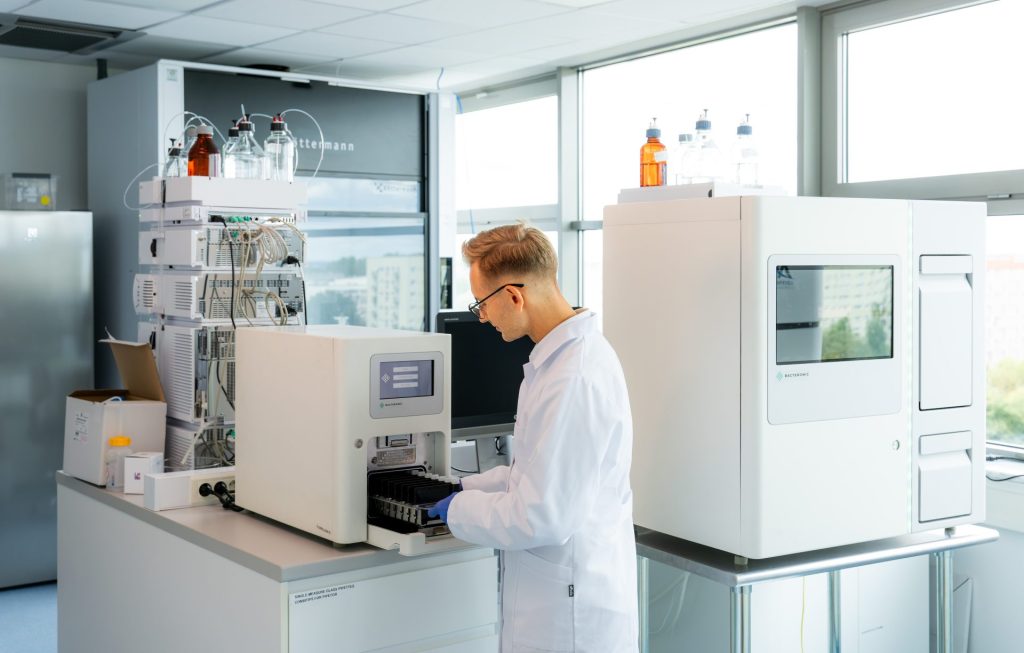Scope Fluidics, a Warsaw Stock Exchange-listed life science company developing innovative technologies for the medical diagnostics and healthcare market, has reported positive internal test results for two panels compatible with the “fast detection” software – the UNI FAST Panel and the PBC Panel. FAST is software used to detect bacterial growth and determine bacterial antibiotic susceptibility within up to eight hours or less. The PBC Panel, in turn, is designed to diagnose bloodstream infections (Positive Blood Culture) and is being developed in a version compatible with the FAST software.
The results confirm that the teams at Scope Fluidics and Bacteromic have the competence to develop panels that meet market demand for determining bacterial antibiotic susceptibility within a single laboratory shift (same shift results) – that is, in less than eight hours.
For both the UNI FAST and PBC Panels, it should be noted that the final number of antibiotics and drug-bug combinations included will depend on further R&D work and the results of additional tests.
The results obtained confirm our belief that the path we have chosen to develop a rapid antibiotic susceptibility testing panel for a broad range of antibiotics was the right one. The BACTEROMIC system with FAST software combines exceptional speed of results with a very broad analytical scope – a feature unmatched by other diagnostic systems. We are at an advanced stage of preparations to obtain IVDR certification, which will serve to clinically confirm the quality of our solution and pave the way for commercialization of the UNI FAST Panel in the European market. Moreover, we now expect to obtain IVDR certification for the BACTEROMIC system equipped with the UNI FAST Panel by mid-2026 rather than, as previously announced, by the end of 2026. We are also pleased with the results achieved in the first phase of internal PoC tests for the PBC Panel, which confirm readiness for testing in external diagnostic facilities as well as for initiating efforts to obtain IVDR and FDA certifications, said Prof. Piotr Garstecki, CEO of Scope Fluidics.
The BACTEROMIC system is currently Scope Fluidics’ most advanced project and a key element of our M&A plans. Continued research progress significantly increases its technological and market value, and the results obtained provide a solid foundation for discussions with potential global partners, emphasized Szymon Ruta, Vice President and CFO of Scope Fluidics.
Details of the second phase of internal work on the UNI FAST Panel
FAST is software used to detect bacterial growth and determine bacterial antibiotic susceptibility within up to eight hours or less.
The results for the UNI FAST Panel concern the second phase of internal Proof-of-Concept work aimed at improving the first version of the software (the company reported on the results of the first PoC phase for FAST in January this year) and verifying the effectiveness of the FAST software using test results for the UNI Panel submitted to the notified body in the IVDR certification process for the BACTEROMIC system. This panel includes 30 antibiotics, 56 drug-bug combinations identified by the Bacteromic team as key, and one ESBL-type resistance mechanism.
During the second PoC phase for the UNI FAST Panel, approximately 2,000 bacterial strains were analyzed across five major groups with varied growth rates. Essential Agreement (EA) was established at a minimum of 90%, while maintaining other criteria required for registration of a diagnostic method. Each result was compared with the gold standard – the broth microdilution method used by certifying bodies (e.g., EUCAST).
The results of the second PoC phase demonstrated the ability of the BACTEROMIC system equipped with the UNI FAST Panel to detect bacterial antibiotic resistance within up to eight hours for 27 antibiotics and 48 corresponding drug-bug combinations. For 42 of these combinations, the BACTEROMIC system delivered results within six hours or less. In addition, the PoC results demonstrated the possibility of adding further drug-bug combinations, currently not included on the UNI Panel, in future versions of the FAST Panel. The results obtained will form the basis for further steps toward IVDR and FDA certification of the UNI FAST Panel (including testing in external facilities) and may also be applied in the ongoing development of the PBC Panel.
Details of the analysis – PBC Panel
The PBC Panel is designed for diagnosing bloodstream infections (Positive Blood Culture, PBC). Because bloodstream infections pose a serious risk and require results as quickly as possible, the PBC Panel is being developed exclusively in a version compatible with the FAST software.
During the first phase of internal PoC work, EA for reference bacterial strains recommended by EUCAST and CLSI on the PBC Panel exceeded 95% when compared with reference MIC values and those obtained for bacterial isolates on the UNI Panel across all 93 tested bacteria-antibiotic combinations.
The high number of tested combinations results from EUCAST’s recommendation to test, on reference strains, combinations not used clinically in order to more precisely verify correct panel performance. Internal studies on approximately 200 clinical bacterial strains also confirm that the PBC Panel’s performance is very similar to that of the UNI FAST Panel. The PBC Panel currently enables testing of bacterial resistance to 29 clinically relevant antibiotics and 60 corresponding drug-bug combinations used in antibiotic therapy for bloodstream infections, as well as one resistance mechanism – ESBL. The results obtained in the first phase of internal PoC tests confirm the PBC Panel’s readiness for testing in external diagnostic facilities and for initiating efforts to obtain IVDR and FDA certification.

